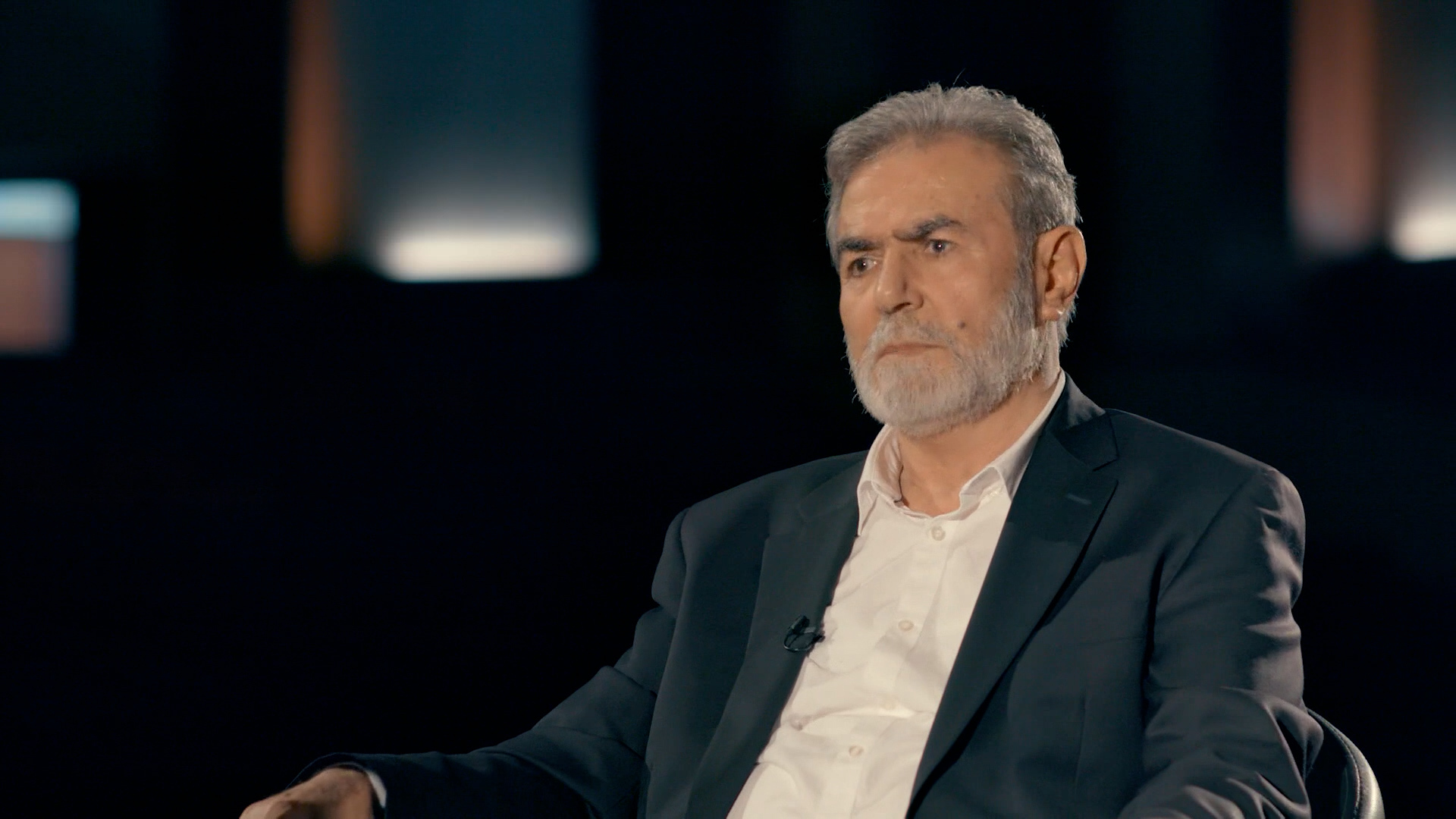The Secretary-General of Islamic Jihad initially talks about his biography associated with resisting the Israeli occupation, and about his childhood, which witnessed the liquidation of his father, Haj Rushdi al-Nakhla, with other Palestinians in the Israeli aggression on the Gaza Strip in 1956.
Nakhaleh - who was born in the early fifties in the Gaza Strip - when he was a young man joined the "People's Liberation Forces" led by Ziada al-Husseini, and was arrested in 1971 and sentenced to life imprisonment for throwing bombs at Israeli patrols.
In prison, Al-Nakhla lived a new life, as he devoted himself to reading books, especially those of Sayyid Qutb, including the book "In the Shadows of the Qur'an".
Al-Nakhla interacted - as he tells the program “The Interview in an episode 30/2022) - with the Islamic trend that began to form inside prisons after the Islamists noticed that the rest of the other currents were participating in the resistance action.
During that period, he communicated with Sheikh Ahmed Yassin, may God have mercy on him, and others from the Muslim Brotherhood, the organization criticized by the Secretary-General of the Islamic Jihad Movement because of what he called the closed-mindedness in which he puts himself, “the organization considers itself that it is the only one who represents Muslims and not without them.”
According to Al-Nakhla, the founder of the Jihad Movement, Dr. Fathi Al-Shaqaqi - who was assassinated on October 26, 1995 by the Israeli Mossad on the island of Malta - was an active and key member of the Muslim Brotherhood, but he disagreed with them about the resistance project, and separated from them because he believed That the basis is jihad in Palestine and not a defense of any other concepts.
Dr. Shikaki built his vision and intellectual system - as al-Nakhla reveals - on the basis that the Islamic state must be an active part of the state of the Palestinian resistance.
The role of the jihad movement in the first intifada
The Islamic Revolution in Iran in 1979 played a role in crystallizing the idea of the peace movement, which was believed in by a group of people in the Gaza Strip, based on the premise that this movement must be integrated into the Palestinian resistance.
The guest of the "Al-Muqabala" program says that Dr. Shiqaqi was impressed by the Iranian revolution, but not on a sectarian basis.
The Islamic Jihad movement, which was founded in 1989, was also affected by this revolution in a political, not an ideological, framework.
He reveals that the constitution and regulations of his movement are based on the fact that it is a Sunni Islamic movement, and does not accept converts among its members.
As soon as he was released from prison in 1985 as part of the famous Galilee prisoner exchange deal, Al-Nakhala was directly involved in the resistance work, after which he was chosen as a member of the first Shura Council of the Islamic Jihad Movement led by Dr. Fathi Al-Shaqaqi, which is the highest leadership body in the movement.
He then proceeded to form the movement's first military wing between 1985 and 1986, although weapons were scarce.
He also formed the first leadership that participated in igniting the first intifada in 1987 and became the movement's representative in the Unified National Command.
And the occupation arrested Nakhaleh again in 1988 and charged him with participating in the establishment of the Islamic Jihad movement, and he was deported to southern Lebanon.
Al-Nakhala mentions that the spark of the first intifada was the escape from Gaza prison, among which were 6 members of the Islamic Jihad movement, stressing that the Jihad movement was the biggest title in the intifada. Intifada rock.

